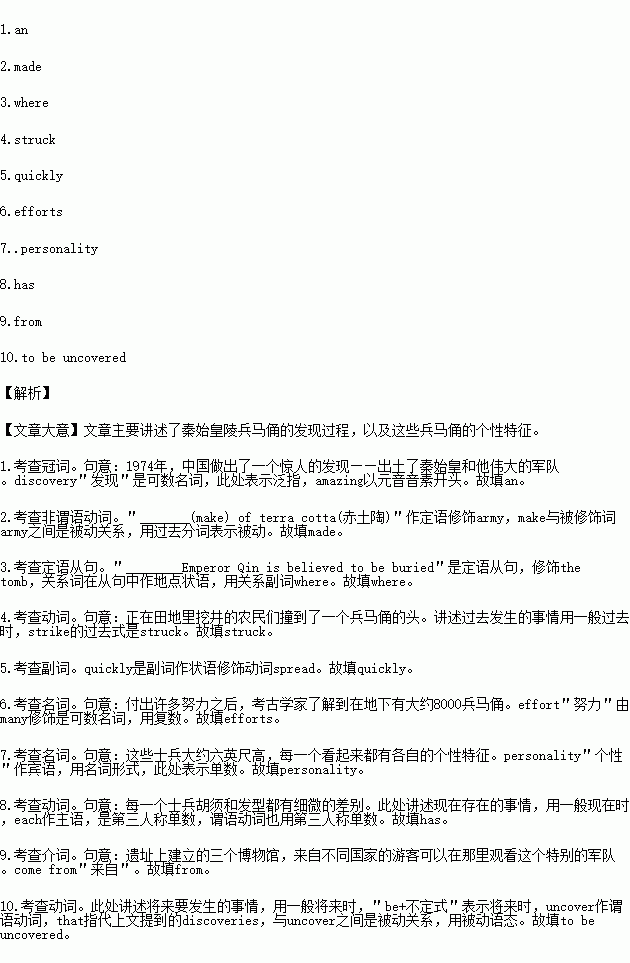题目内容
In 1974, the Chinese made 1. amazing discovery--the stories about Emperor Qin and his great army. An army of more than 8,000 soldiers 2. (make) of terra cotta(赤土陶), baked reddish clay, is buried beneath the earth not far from the tomb 3. Emperor Qin is believed to be buried.
Farmers digging a well in a field 4. (strike) the head of a terra-cotta soldier, The news that Emperor Qin and his great army were discovered 5. (quick) spread, and archeologists rushed to the site. After many 6. (effort),archeologists learned that about 8,000 terra-cotta warriors(兵马俑) were placed beneath the ground.
So far, archeologists have dug up and pieced together about l,000 0f the soldiers. The soldiers stand about six feet tall, and each appears to have his own separate 7. (personal). Some are almost smiling; some look very serious. Each 8. (have) his own little mustache and little changes to his hairstyle.
Visitors coming 9. different countries can see the special army in three museums built above the site. And they can look to the tree-covered Mount. Li nearby and reflect on all the discoveries that are yet 10. (uncover).
 阅读快车系列答案
阅读快车系列答案

 later I saw Ivan Goldfarb, a former teacher and asked him about Cornell. He said, “If you get in,then you go. You can do it.” His words made all the difference. I applied, and was accepted.
later I saw Ivan Goldfarb, a former teacher and asked him about Cornell. He said, “If you get in,then you go. You can do it.” His words made all the difference. I applied, and was accepted.